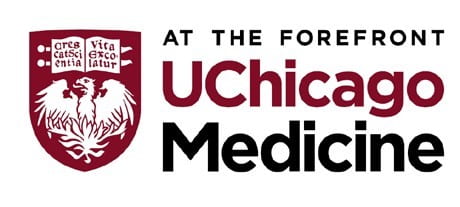Diversity Studies in PGx
In 2009, only 4% of participants in genome-wide association studies (GWAS) were of non-European descent, limiting the generalizability of findings. Representation from African, Latin American, Hispanic, and indigenous populations remains stagnant. Despite mandates for diversity in research funding, GWAS continue to miss a substantial portion of global genetic variation.
Diversity Studies in PGx at the Center of Personalized Therapeutics is dedicated to creating a Research Program in Pharmacogenomics (PGx) that not only advances scientific knowledge but also addresses the crucial need for diversity and inclusion in genomic research. We are committed to tailoring our implementation strategies to ensure that underrepresented patient populations are included and that the benefits of personalized medicine are accessible to all.
Enhancing Diversity in Pharmacogenomic Research
The early genomic studies primarily focused on individuals of European descent. This marginalizes access of underrepresented populations to precision medicine and pharmacogenomics (PGx). At The Center of Personalized Therapeutics, we are committed to advancing PGx research that is inclusive, equitable, and reflective of the diverse world we live in.
Issues with Current Pharmacogenomics
Knowledge Gap in Pharmacogenomics (PGx)
The historically underrepresentation of ethnically diverse populations has been an impediment to achieving health equity within the field of genomics. This lack of representation which extends to pharmacogenomics (PGx) research has sparked debate over the magnitude of the benefits and harms ethnically diverse populations might experience as a result of the use of PGx to guide medication prescribing. While efforts to make genomics research more inclusive and representative of our global population have increased, it is fundamental that underrepresented and underserved populations be included in the science and clinical implementation of pharmacogenomics research from the beginning to avoid potentially perpetuating inequities and/or exacerbating disparities. Furthermore, knowledge surrounding tailoring the implementation of pharmacogenomics to promote health equity across diverse populations is limited.
Ongoing Studies in PGx
Ongoing Effort to Bridge the Health Disparities in PGx
The lack of diversity in human genomics research and reference datasets is a significant issue with serious consequences. To address this, we must understand historical influences, current problems with classification and study design, and the biases introduced by social and cultural population descriptors. These issues contribute to disparities in clinical genetics and precision medicine. Additionally, the lack of diversity in the genomics workforce perpetuates these problems, highlighting the need for active recruitment and promotion of individuals from diverse backgrounds to improve both scientific research and workplace environments.
Read more
An Urgent Call to Enhance Diversity in Precision Medicine.
While national efforts within the Precision Medicine Initiative and by the US National Institutes of Health (NIH), such as the All of Us research program, have catalyzed work to improve the inclusion of diverse populations, genotype and phenotype databases are still missing a large section of human genetic variation as most genomic studies include data primarily from individuals of European descent. Individuals of African and Latin American ancestry, Hispanic peoples, and native or indigenous people are still being vastly underrepresented in genomic research, making up a stunningly low 4% of all analyzed genome-wide association studies (GWAS) (as of 2019).
This lack of diversity not only affects biomedical research but works to further healthcare inequalities. Serious clinical implications are reflected in pharmacogenomics where population-specific differences in the frequencies of variants could mean that certain medications will have different safety and efficacy across populations. The implementation of PGx testing into clinical care must consider the utility of PGx for minoritized populations alongside the factors which influence the delivery of personalized medicine to diverse populations.
%
PERCENT OF GENOME WIDE ASSOCIATION STUDIES COME FROM EUROPEAN ANCESTRY
%
PERCENT OF GWAS STUDIES CONDUCTED IN ASIAN POPULATIONS
%
PERCENT OF GENETIC STUDIES ON DRUG RESPONSE CONDUCTED IN AFRICAN POPULATIONS
%
PERCENT OF GWAS STUDY CONDUCTED IN HISPANIC ANCESTRIES
Petrovski & Goldstein, 2016, Trends in Pharmacological Sciences
Project & Ongoing Studies
Eradicating Health Disparity in Pharmacogenomics
In the study, “Health Equity and Risk Communication in Pharmacogenomics”, we aim to investigate inter-ethnic disparities in the use of prescription drugs with evidence-based PGx guidelines and assess the potential impact of PGx testing on minority populations. Additionally, we seek to identify the views and perspectives of patient-provider pairs on PGx risk communication to determine implementation strategies for risk communication preferences. Furthermore, we aim to evaluate the influence of PGx risk information on inter-ethnic patient beliefs and preferences for the clinical use of PGx. Through this research, we strive to address to the urgent need to discover methods of tailoring PGx implementation to the expectations and needs of ethnically diverse populations so as to not widen health disparities.
Diversity
We aim to investigate the inter-ethnic disparities in the use of prescription drugs with evidence-based PGx guidelines and assesses the potential impact of PGx testing on minority populations.
Communication
We strive to identify views/perspectives of patient-provider pairs on PGx risk communication to determine implementation strategies for risk communication preferences
Risk Assessment
We carefully evaluate the influence of PGx risk information on inter-ethnic patient beliefs and preferences for the clinical use of PGx.


Project
Addressing Disparities in Pharmacogenomics: A Focus on Communication and Inclusion
With the help of personalized research, clinicians now have the ability to select medications that work best for each patient, but there is a need to ensure that these benefits are accessible to all. Communication is key to patient diagnosis and effective treatment, and pharmacogenomics is no exception. Our project investigates communication processes essential to pharmacogenomics (PGx) implementation, with a focus on disadvantaged and unrepresented communities. By understanding and addressing communication barriers, we aim to provide a foundation for future studies that evolve approaches for delivering PGx care to patients at risk for health disparities.
Our Dedication to Improving Health Equity In Precision Healthcare
In an effort to better understand and examine the impact of pharmacogenomics on underserved and underrepresented populations, Dr. Loren Saulsberry is leading projects within the Center for Personalized Therapeutics which investigate and guide the implementation of emerging pharmacogenomic technologies to improve access to personalized medicine among minoritized populations and reduce health disparities.
By tailoring PGx implementation to the expectations and needs of ethnically diverse populations, we aim to mitigate health disparities and improve healthcare outcomes for all.


Our Approch
- We are dedicated to address the under-representation of ethnically diverse populations in genetic studies, which impedes our understanding of human disease genetics and worsens health disparities.
- We aim to include diverse populations in genetic studies for accurate risk assessment and intervention development, emphasizing the need for equity in research.

Publications
Our Publications: Toward Equitable Healthcare for Diverse Populations
Healthcare Disparity in PGx
Dive into the underrepresentation of certain ancestry groups in genetic variation studies.
Read Publication
Racial Minority Experience
Explore the equity barrier for African American and Latinx individuals in pharmacogenomic testing.
Read Publication
Healthcare Equity and Inclusivity
Address the need for an inclusive approach in PGx to ensure equitable healthcare for diverse populations.
Read Publication
Read Publication
More Inclusive Data in PGx
Examining pharmacogenomic implementation in the context of minority health disparities.
Disparity in Drug Studies
Examining racial disparity in adverse drug reactions, calling for the need for improving genetic diversity in PGx studies
Read Publication
Read Publication
Publications
Our Publications: Toward Equitable Healthcare for Diverse Populations
By leading discourse of PGx implementation in underrepresented communities, we aim to develop strategies that address the diverse needs of ethnically varied populations. Our publication reinforces that all individuals is entitled to receive the benefits of personalized medicine. Read our paper to learn more about our ongoing diligence to promote equitable healthcare outcomes for everyone.
Healthcare Disparity in Pharmacogenomics
This paper discusses how the underrepresentation of certain ancestry groups in genetic variation studies leads to healthcare disparities in precision medicine.
Urgency to Inclusivity in Pharmacogenomics
The article addresses the need for a more inclusive approach in pharmacogenomics to ensure equitable healthcare outcomes for diverse populations.
Racial Minority Experience
This study explores the views of African American and Latinx individuals and healthcare providers on pharmacogenomic testing, highlighting concerns and potential barriers to its implementation.
Precision Oncology and Healthcare Equity
This research focuses on the importance of incorporating pharmacogenomic data from racial and ethnic minority groups to improve treatment efficacy and reduce adverse drug reactions.
Racial Disparity and Adverse Drug Reactions
This systematic review and meta-analysis investigates racial disparities in adverse drug reactions, highlighting the need for personalized approaches in pharmacotherapy.
PGx
Awards and Recognitions
With an unwavering commitment to personalized medicine, the PGx Diversity project leads a unique exploration in public health and healthcare equity in pharmacogenomic studies.
Awards
We are proud to announce that our team has been honored with the 2022 K Award at the Midwest Clinical and Translational Research Meeting, hosted by the Central Society for Clinical and Translational Research (CSCTR). This prestigious award recognizes our dedication to advancing research in pharmacogenomics, particularly in the realm of communication processes essential to implementation. We are grateful for this recognition and remain committed to our mission of improving healthcare outcomes for all, including disadvantaged and unrepresented communities.




Dr. Loren Saulsberry, PhD. Assistance Professor of Public Health Sciences
Project Lead
Loren Saulsberry, PhD
Loren Saulsberry, PhD (Principal Investigator) is an Assistant Professor in the Department of Public Health Sciences, Assistant Program Leader of the Cancer Prevention and Control Program, and Assistant Director of Diversity Studies of the Center for Personalized Therapeutics at The University of Chicago. She studies health policies and services aimed at narrowing health disparities. Specifically, she is interested in the experiences of underrepresented and medically underserved populations managing chronic conditions and how the advancement and implementation of genomic medicine, particularly pharmacogenomics, impacts health disparities.
Stay updated with our progress in addressing disparity in healthcare.
Stay informed and join our mission to bridge the equity gap in precision healthcare. Subscribe to our newsletter and follow us on Twitter for the latest updates on our initiatives to improve healthcare equity.
Pharmacogenomic Discovery on X
Filler words, basically introduces our twitter. I don’t know what is PGx’s twitter account. Pharmacogenomic discovery research seeks to find new genetic associations that affect patient responses to medications. For example, CPT members identified a variant within the KDR gene that affects patient response to pazopanib, a cancer medication.
News Feature: Conversation with Dr. Saulsberry
What are the current challenges in achieving health equity in cancer genomics? How can we address disparities in access to genomic advancements in cancer care? What role do policy and research play in bridging the gap in cancer genomics? Click here to access Dr. Loren Saulsberry, PhD.’s. conversation with Lyndra Vassar and explore her insight on health equity in cancer genomics.
Join us on this remarkable journey as we continue to revolutionize personalized medicine through inclusivity.
Phone
(773)-834-0936
Open Hours
Mon – Fri: 9:00 AM – 4PM
Address
5841 South Maryland Avenue, MC 2115


